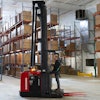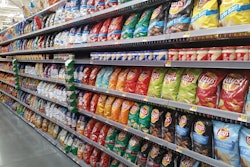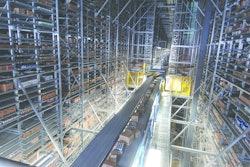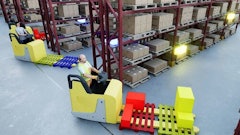
As Amazon encroaches on supermarket territory, traditional European retailers are taking bigger steps to fight the U.S. e-commerce giant by offering more non-food products and using extensive store networks as delivery hubs, according to Reuters.
Persistent food price deflation across Europe helped trigger Britain's Sainsbury's bid for home products retailer Argos. That follows Dutch chain Ahold's purchase of leading e-commerce site Bol.com in 2012 and French Casino's decision to take full control of e-commerce retailer Cdiscount in 2011.
Sainsbury's hopes that using its stores as pick-up points for a wider range of goods will boost profitability. Ahold and Casino have both achieved more sales volume through their stores by encouraging customers to pick up non-food orders at their supermarkets. Ahold's online sales grew more than 30 percent in the fourth quarter while discount customers can collect goods from 2,500 Casino stores.
"Food retailers offering non-food is a necessary survival move," said Sophie Albizua of retail consultancy eNova Partnership. "Margins in food are razor thin and margins in online food are almost non-existent so non-food is a way to have a slice of a more viable market."
Britain is one of the world's most advanced markets for grocery ecommerce. Even German discounter Aldi, which has been skeptical about ecommerce, is feeling the pressure to change. Its British arm started to sell wine online in January.
But it has taken pioneers like Tesco and Ocado decades to reach break-even, as keeping fresh produce at the right temperature makes logistics pricey.
To have a chance of turning a profit in grocery e-commerce, retailers need scale and they are more likely to recoup delivery costs if they can get shoppers to add higher margin non-food items to their fruit and veg shop, or better still, they would prefer customers to pick up orders themselves from a store.
As e-commerce leaches sales from stores, many retailers have looked for ways to trim their expensive real estate portfolios. However, stores can be an asset in the fight against Amazon if used as distribution hubs for goods ordered online.
"From a real estate perspective, supermarkets are in a prime position due to their proximity to customers," said Carl Hartman, head of logistics technology company Temando, which expects customers to demand ever faster, more flexible delivery.
Sainsbury's Chief Executive Mike Coupe says buying Argos would give the combined group a major advantage over Amazon due to a network of 2,000 stores-cum-collection points.
"The more points of distribution you have ... the more attractive and convenient that is for customers, because in the end, retailing generally is driven by proximity," he said.
Coupe noted that department store chain John Lewis says half of its online orders are now collected in store, with 35 percent picked up from its sister chain of Waitrose supermarkets.
Recognizing the popularity of "click and collect" in Europe, Amazon is setting up a network of parcel lockers to offer a broader range of pick-up options.
To read more, click here.


















